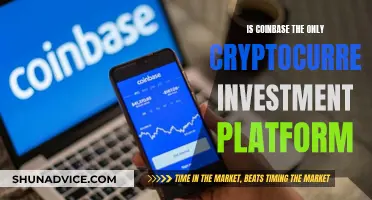
Ripple (XRP) is a cryptocurrency that was created by a private, for-profit company, Ripple, to enable frictionless international transactions. XRP is currently the sixth most popular cryptocurrency by market cap and can be purchased on several exchanges, such as Uphold, Kraken, Bitstamp, and Coinbase. It is also available on some decentralised finance (DeFi) platforms and cryptocurrency ATMs. XRP is a utility token that serves as a mediator for exchanges, allowing banks to facilitate global money transfers without considering exchange rates.

XRP Ledger Consensus Protocol
The XRP Ledger Consensus Protocol is a byzantine fault-tolerant consensus mechanism. It is designed to work even when participants rely on an unreliable open network to communicate, and malicious actors may be attempting to control or interrupt the system. The protocol is also designed to handle a changing set of participants, as the set of participants is not known in advance and can vary over time.
The protocol is designed to confirm transactions quickly while maintaining the desired properties of the network. It is impossible to build a perfect system, so the XRP Ledger Consensus Protocol is designed to work as well as possible in most situations and to fail gracefully when it cannot.
The core principle behind the XRP Ledger's consensus mechanism is that a little trust goes a long way. Each participant in the network chooses a set of validators, which are servers specifically configured to participate actively in consensus. These validators are run by different parties, who are expected to behave honestly most of the time according to the protocol.
As the network progresses, each server listens to its trusted validators. As long as a large enough percentage of them agree that a set of transactions should occur and that a given ledger is the result, the server declares a consensus. If they don't agree, validators modify their proposals to more closely match the other validators they trust, repeating the process in several rounds until they reach a consensus.
The XRP Ledger processes transactions in blocks called "ledger versions", or "ledgers" for short. Each ledger version contains three pieces: the current state of all balances and objects stored in the ledger, the set of transactions that have been applied to the previous ledger to result in this one, and metadata about the current ledger version, such as its ledger index and a cryptographic hash that uniquely identifies its contents.
The main goal of the XRP Ledger Consensus Protocol is to agree on a set of transactions to add to the next ledger version, apply them in a well-defined order, then confirm that everyone got the same results. When this happens successfully, a ledger version is considered validated and final. From there, the process continues by building the next ledger version.
Dappradar Coin: A Good Investment or Just Hype?
You may want to see also

RippleNet
Overall, RippleNet provides a decentralized platform for financial institutions to move funds around the world quickly and efficiently, enhancing the traditional international payment system.
Best Apps to Invest in Dogecoin: Your Ultimate Guide
You may want to see also

XRP as a utility token
XRP is the native token of the XRP Ledger (XRPL), a decentralized, layer-1 blockchain with reliability and stability proven for over a decade. It is similar to how ETH works for the Ethereum blockchain or BTC for Bitcoin.
XRP is a utility token that facilitates transactions on the XRPL network, protects the ledger from spam, and bridges currencies in the XRPL's native decentralized exchange (DEX). It is also the only cryptocurrency determined not to be a security in the United States and has a foundation of regulatory clarity in several other countries.
The XRPL is a blockchain built for business, offering streamlined development, low transaction costs, high performance, and sustainability. It has been functioning for over a decade without errors, with thousands of transactions settled in seconds at a fraction of a penny per transaction.
XRP enables businesses and financial institutions to drive their blockchain-based applications at scale. It supports large-scale applications and long-term projects, with 2.8 billion+ transactions processed, representing over $1 trillion in value moved between counterparties since 2012.
XRP is also used by Ripple, a technology company whose solutions use XRPL and other digital assets. Ripple is a holder of XRP and one of the developers building on and contributing to the XRP Ledger.
By using XRP for cross-border payments, financial institutions can bridge currencies and ensure payments are sent and received in local currency on either side of a transaction in as little as 3 seconds.
A Million-Dollar Question: Investing $100 in Bitcoin in 2010
You may want to see also

Ripple Stock
Ripple (XRP) is a cryptocurrency that can be used as a payment method or as a way to speculate on price movements. XRP is the native token for the XRP Ledger, which was designed as a payment system for business purposes. The XRP Ledger is a distributed platform on a blockchain with a native cryptocurrency, XRP. It serves as a decentralised market for XRP trading between users.
Ripple is currently the sixth most popular cryptocurrency by market cap. It is different from its major competitors, Bitcoin and Litecoin, because it was created by a private, for-profit company. When it was created, 100 billion XRP were released into the market, with 20 billion being held by the creators and the rest being given to Ripple Labs.
Ripple Labs has since placed 55 billion XRP in an escrow account to ensure users stability in the marketplace. It is important to note that Ripple has been called a "Bitcoin-killer" since at least 2014, but it has only gained real traction and momentum among cryptocurrency enthusiasts in recent years.
Ripple has had explosive price increases similar to other currencies, but it is still very "cheap" in terms of price - roughly $0.30. The biggest driver of XRP prices seems to be updates in the SEC trial. In 2016, the SEC filed charges against Ripple and two of its founders in regard to XRP, which resulted in most centralised exchanges suspending trading on XRP. However, XRP won the lawsuit and, as of July 13, is no longer considered a security.
XRP can be purchased from centralised cryptocurrency exchanges, peer-to-peer (P2P) services, decentralised finance (DeFi) platforms, cryptocurrency ATMs, payment processors, and mobile wallets. It can also be earned passively through lending, liquidity provision, and rewards programs.
If you are planning to invest in Ripple for the long term, a hardware wallet is the best option. Hardware wallets keep your crypto stored offline in "cold storage", making it impossible for online threats to access your holdings. The Ledger Nano S or the more advanced Ledger Nano X both support Ripple (XRP).
Dogecoin: Which Companies Are Investing?
You may want to see also

XRP Ledger
The XRP Ledger is a decentralized, public blockchain designed for businesses. It is maintained by a global community of businesses and developers who work together to solve problems and create value. The XRP Ledger has proven reliable over more than a decade of error-free functioning, offering streamlined development, low transaction costs, high performance, and sustainability.
The XRP Ledger is a distributed platform on a blockchain with a native cryptocurrency, XRP. It serves as a decentralized market for XRP trading between users. The ledger and its cryptocurrency, XRP, are primarily intended to function as a form of settlement for cross-border finance, but XRP is also a widely recognized and traded cryptocurrency.
The XRP Ledger relies on a unique consensus algorithm that operates through trusted sub-networks, interconnected segments of a greater network of geographically distributed validator nodes. Each sub-network trusts a specific set of nodes known as the Unique Node List (UNL), which consists of a limited number of servers owned and operated by diverse financial institutions, including banks.
The XRP Ledger is also a high-performance decentralized peer-to-peer multi-currency exchange built directly into the blockchain, enabling users to atomically settle multi-hop payments that cross currency or national boundaries with ease. All currencies other than XRP can be represented in the XRP Ledger as tokens.
XRP can be purchased on centralized cryptocurrency exchanges, peer-to-peer (P2P) services, decentralized finance (DeFi) platforms, cryptocurrency ATMs, payment processors, and mobile wallets. It can also be earned passively through lending, liquidity provision, and rewards programs.
Bitcoin's Ethical Investment: Exploring the Moral Minefield
You may want to see also
Frequently asked questions
Ripple is the company that created the Ripple Consensus Ledger. It functions as both a platform and a currency. It was designed to bridge the gap between traditional financial institutions and the blockchain sector.
XRP is the native token for the XRP Ledger, which was created as a payment system by Ripple in 2012. It is currently the sixth most popular cryptocurrency by market cap.
Ripple is different from its major competitors, Bitcoin and Litecoin, as it was created by a private, for-profit company. It was intended to enable frictionless global money transfers.
You can buy XRP on several exchanges, including Bitstamp, Kraken, Huobi Global, and Coinbase. You can also purchase it through peer-to-peer services, cryptocurrency ATMs, payment processors, and mobile wallets.
Investing in cryptocurrency is generally considered high-risk. In 2020, the SEC filed charges against Ripple, and as a result, many centralized exchanges suspended trading on XRP. Although XRP won the lawsuit, it is still subject to an SEC investigation.







